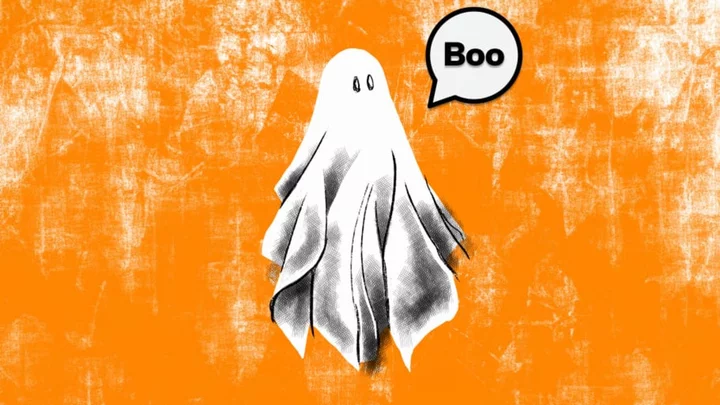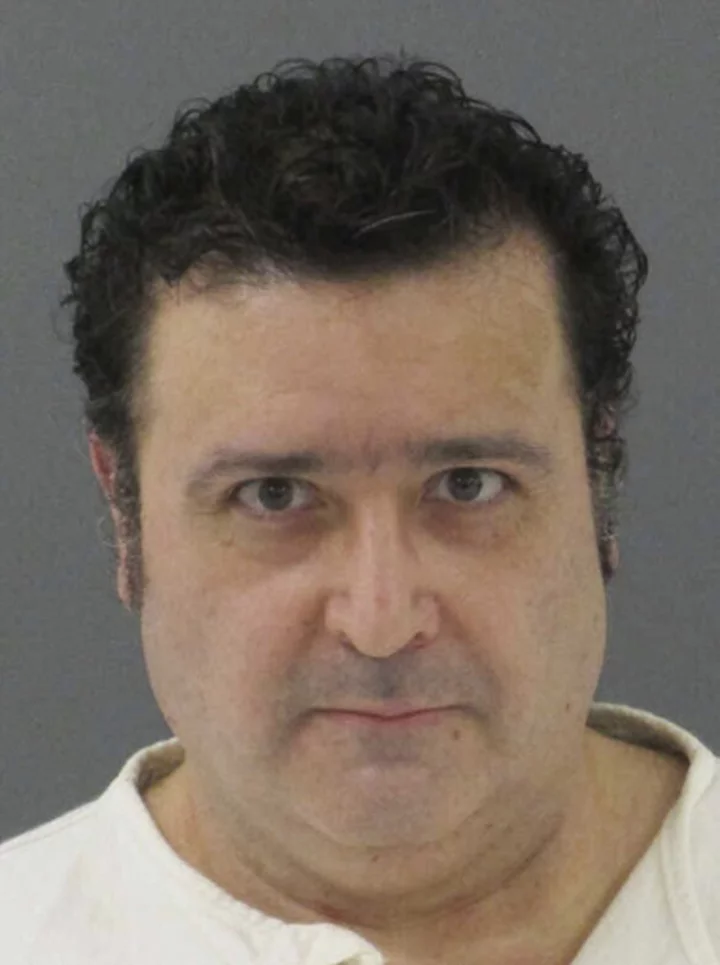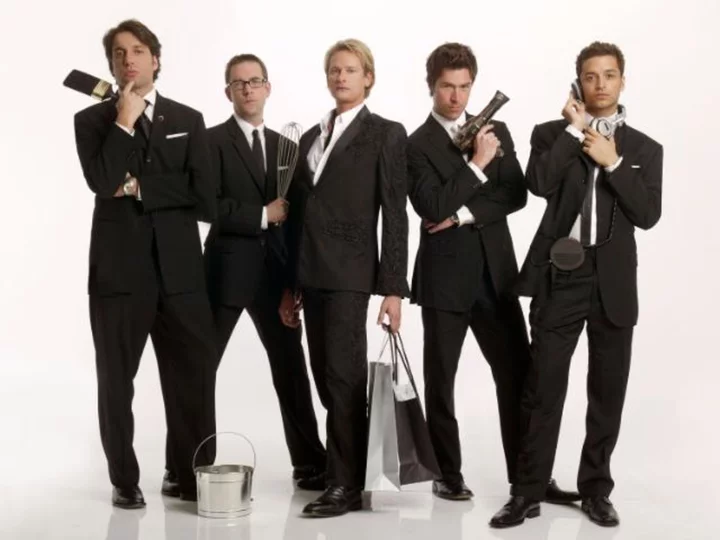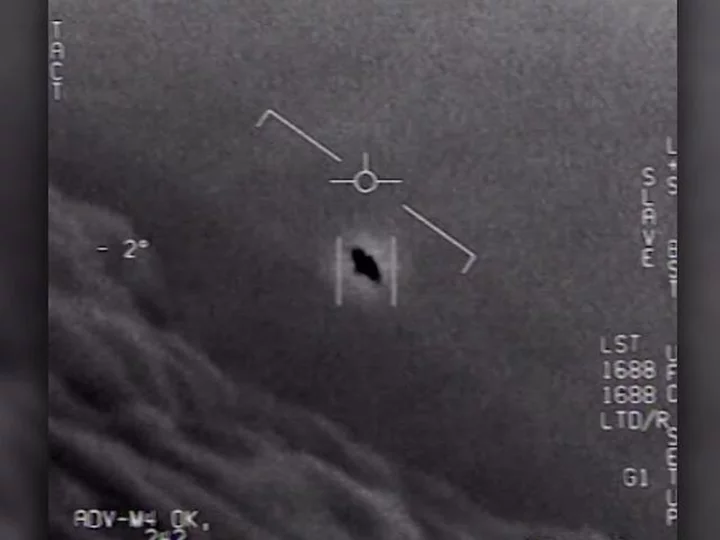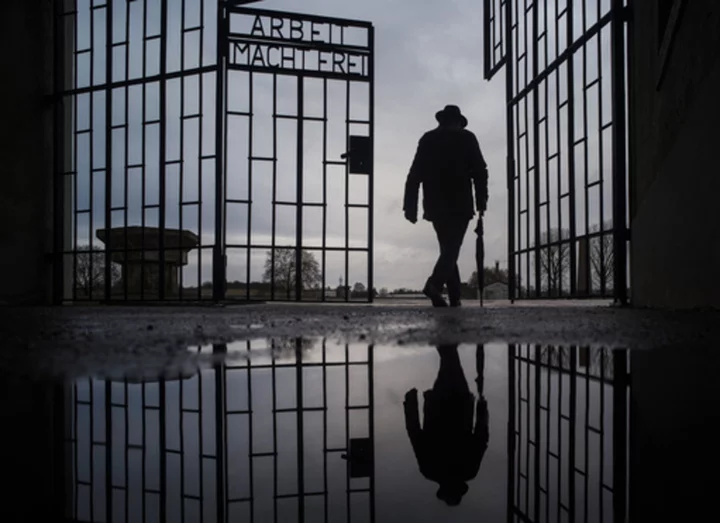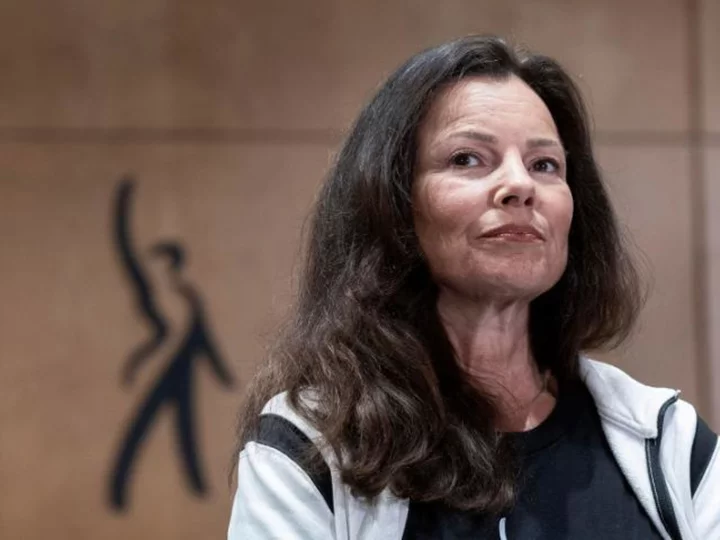People have screamed “boo,” or at least some version of it, to startle others since the mid-16th century. (One of the earliest examples documented by the Oxford English Dictionary appeared in that 1560s poetic thriller, Smyth Whych that Forged Hym a New Dame.) But ghosts? They’ve only been using the word boo for less than two centuries.
The Mysterious Origins of the Word Boo
The etymology of boo is uncertain. The OED compares it with the Latin boare or the Greek βοᾶν, meaning to “cry aloud, roar, [or] shout.” Older dictionaries suggest it could be an onomatopoeia mimicking the lowing of a cow.
Whatever the origins, the word had a slightly different shade of meaning a few hundred years ago: Boo (or, in the olden days, bo or bu) was not used to frighten others but to assert your presence. Take the traditional Scottish proverb “He can’t say bo to a goose,” which for centuries has been a slick way to call somebody “timid” or “sheepish.” Or consider the 1565 story Smyth Whych that Forged Hym a New Dame, in which an overconfident blacksmith tries to hammer a woman back into her youth, and the main character demands of his dying experiment: “Speke now, let me se / and say ones bo!”
Or, as Donatello would put it: “Speak, damn you, speak!”
Boo Gets Scarier
But boo became scarier with time. After all, as the OED notes, the word is phonetically suited “to produce a loud and startling sound.” And by 1738, Gilbert Crokatt was writing in Presbyterian Eloquence Display’d that, “Boo is a Word that's used in the North of Scotland to frighten crying children.”
In 18th century Scotland, bo, boo, and bu would latch onto plenty of words describing things that went bump in the night. According to the Dictionary of the Scots Language, the term bu-kow applied to hobgoblins and “anything frightful,” such as scarecrows. The word bogey, for “evil one,” would evolve into bogeyman. And there’s bu-man, or boo-man, a terrifying goblin that haunted man:
“Kings, counsellors, and princes fair,
As weel’s the common ploughman,
Hae maist their pleasures mix’d wi’ care,
An’ dread some muckle boo-man.”
It was only a matter of time until ghosts got lumped into this creepy “muckle boo-man” crowd.
Which is too bad. Before the early 1800s, ghosts were believed to be eloquent, sometimes charming, and very often literary speakers. The spirits that appeared in the works of the Greek playwrights Euripides and Seneca held the important job of reciting the play’s prologue. The apparitions in Shakespeare’s plays conversed in the same swaying iambic pentameter as the living. But by the mid-1800s, more literary ghosts apparently lost interest in speaking in complete sentences. Take this articulate exchange with a specter from an 1863 Punch and Judy script:
Ghost: Boo-o-o-oh!
Punch: A-a-a-ah!
Ghost: Boo-o-o-o-oh!
Punch: Oh dear ! oh dear ! It wants’t me!
Ghost: Boo-o-o-o-oh!
The Influence of Spiritualism
It’s no surprise that boo’s popularity rose in the mid-19th century. This was the age of spiritualism, a widespread cultural obsession with paranormal phenomena that sent scores of people flocking to mediums and clairvoyants in hopes of communicating with the dead.
Serious scientists were sending electrical shocks through the bodies of corpses to see if reanimating the dead was possible; readers were engrossed in terrifying Gothic fiction (think Frankenstein, Zastrozzi, and The Vampyre); British police departments were reporting a heightened number of ghost sightings as graveyards were plagued by “ghost impersonators,” hoaxsters who camped out in cemeteries covered in white robes and pale chalk. It’s probably no coincidence that ghosts began to develop their own vocabulary—limited as it may be—during a period when everybody was curious about the goings-on within the spirit realm.
It may also help that boo was Scottish. Many of our Halloween traditions, such as the carving of jack-o’-lanterns, were carried overseas by Celtic immigrants. Scotland was a great exporter of people in the middle of the 1800s, and perhaps it’s thanks to the Scots-Irish diaspora that boo became every ghost’s go-to greeting.
Now that you know why ghosts say “boo,” find out a few regional terms for spirits and haunts that you might want to work into conversation, and learn about “ghost words”—nonexistent words that somehow found their way tino the dictionary.
A version of this story ran in 2017; it has been updated for 2023.
This article was originally published on www.mentalfloss.com as Why Do Ghosts Say “Boo”?.

